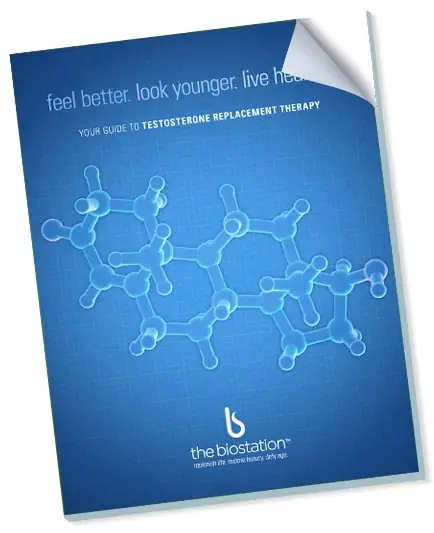understanding low testosterone in men
Male aging begins much earlier than most men realize. Testosterone levels start to drop at a slow and steady rate in a man’s late twenties and continues well into his golden years. This decline becomes more evident in middle-age when some men experience what has become known as andropause, or “male menopause.” This condition of hormone imbalance in men is characterized by a number of distressing symptoms, such as fatigue, muscle loss, increased body fat, sleeplessness, night sweats, irritability, depression and various forms of sexual dysfunction, like low libido and erectile dysfunction.
Low testosterone affects more than a man’s quality of life, it can seriously diminish his health too. Men with Low-T, as the condition of low testosterone is commonly referred to, increases a man’s risk of osteoporosis, diabetes and diminishes his mortality rate as well. Research has shown that maintaining balanced testosterone levels throughout the lifespan improves quality of life and raises the life expectancy for men.
other hormone deficiencies that affect men
Another hormone that impacts a man’s health and quality of life is human growth hormone (HGH). HGH plays significant roles in bone strength and density, muscle growth and mass and even brain function. This hormone peaks late in adolescence and starts to decline in a man’s twenties. By the age of 60, most men have little to no production of this vital hormone.
defy age with bioidentical hormone replacement therapy
Men don’t have to live with low testosterone or diminishing HGH, nor does any man need to continue suffering from the frustrating symptoms that accompany these forms of male hormonal imbalance. Hormone replacement therapy and lifestyle changes can safely and effectively reduce the outcomes commonly associated with aging in men.
 East Delray, Florida
East Delray, Florida West Delray, Florida
West Delray, Florida The Boca Raton, Florida
The Boca Raton, Florida Midtown Miami, Florida
Midtown Miami, Florida Carillon Wellness Resort
Carillon Wellness Resort  Williams Island
Williams Island  Midtown Tampa, Florida
Midtown Tampa, Florida Life Time
Life Time Grand Wailea
Grand Wailea  NOW OPEN
NOW OPEN  COMING SOON
COMING SOON 

